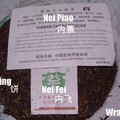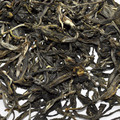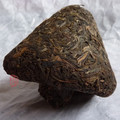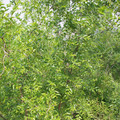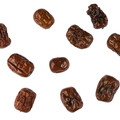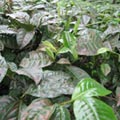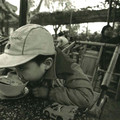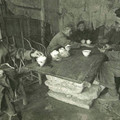Puer Tea Glossary - Zhi Zheng Tea Shop
„hui gan; 回甜 - Hui 回- return, come back, reply. 甜, gan-sweet. Together - sweet return, sweet aftertaste. Used generally to refer to the aftertaste of tea, be it sweet or not.“
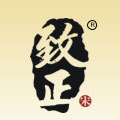
Quotes Tags: Tea infusion, China, Experiencing tea, Pu-erh
- Discussion: 0 comments
- Write a comment
Teas - Pu-erh
Big Green Tree Yiwu 2004
 1 review
1 reviewBig Green Tree Yiwu (special grade) year 2004 is a very nice aged pu-erh still for a...
2015 Chawangpu Collection
 0 reviews
0 reviewsThis spring we bought entire collection of puerh teas from Cha Wang Shop produced in...
2015 Chawangpu Hekai Gushu Xiao Bing
 1 review
1 reviewMaterial for this cake came from Man Nan Lao Zhai in Hekai mountain. Man Nan Lao Zhai...
Lao ManE 2013 autumn
 1 review
1 reviewThe LaoManE rules over this autumn teas. In this village you may find really bitter tea...
Quotes - Pu-erh
„Pang xie jiao; 旁鞋脚. Latin; (Viscum articulatum Burm.f.) Literally Crabs legs. A parasitic plant that grows on trees in sub-tropical regions. When it grows on the tea tree it absorbs flavour from the tree and makes a sweet, refreshing drink, hot or cool. Very limited availability. Puer cakes can be found that have Pangxiejiao mixed into the cake. Normally around 10-15%. It is also part of the Chinese medicine pharmacopoeia – said to have a diuretic effect and is used to clear heat“

Quotes Tags: Pu-erh, Tea production, China, Health
Video - Pu-erh
Theme
Teas
2013 Chawangpu "Shuang Shu" Xiao Bing Cha
 1 review
1 reviewThis is the first time we made blending raw puer cake, so we took advice from a more experienced tea...
2007 Jingmai Qiao Mu “0502”
 1 review
1 reviewUse Jingmai mountain arbor (Qiao Mu) tea which picked before Grain Rain (mid-April) as raw material, this...
2013 Wuliang Wild Hongcha
 2 reviews
2 reviewsThis tea is collected from ancient, wild trees on Wuliang mountain. These are truely wild trees, that...
Tea by region
We will help you with tea selection.
Do you like quality loose tea?
We will help you to find the right one for you. Be inspired by tea ratings of other tea lovers. Rating stars could help you.


Review your cup of tea.
Review the tea you are drinking and help other tea lovers to find the right cup of tea.






 Shops
Shops Share on Facebook
Share on Facebook






